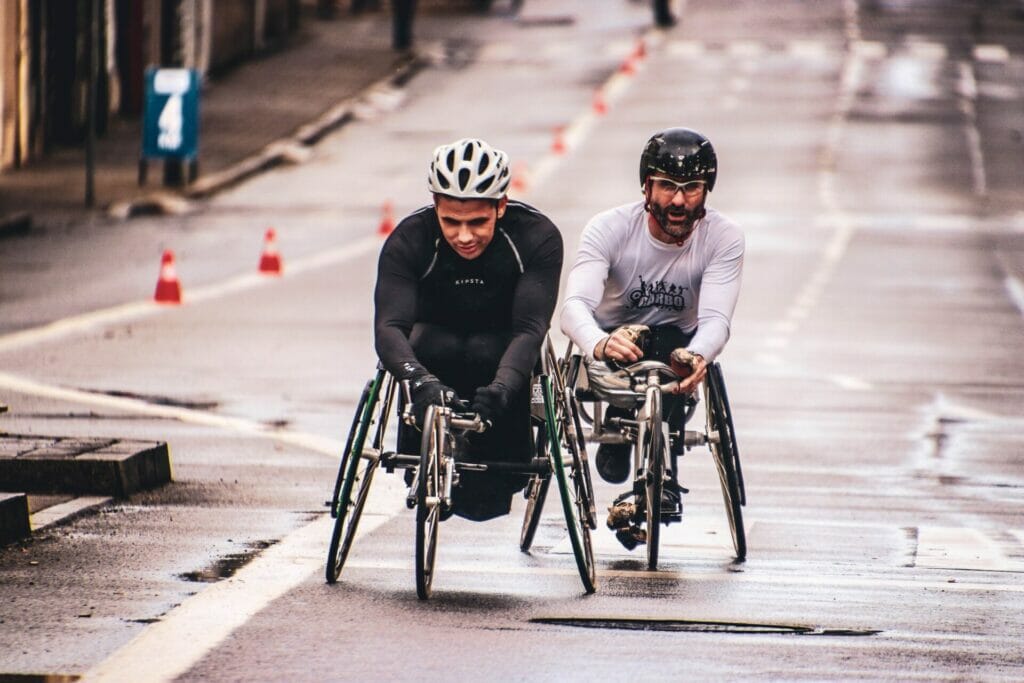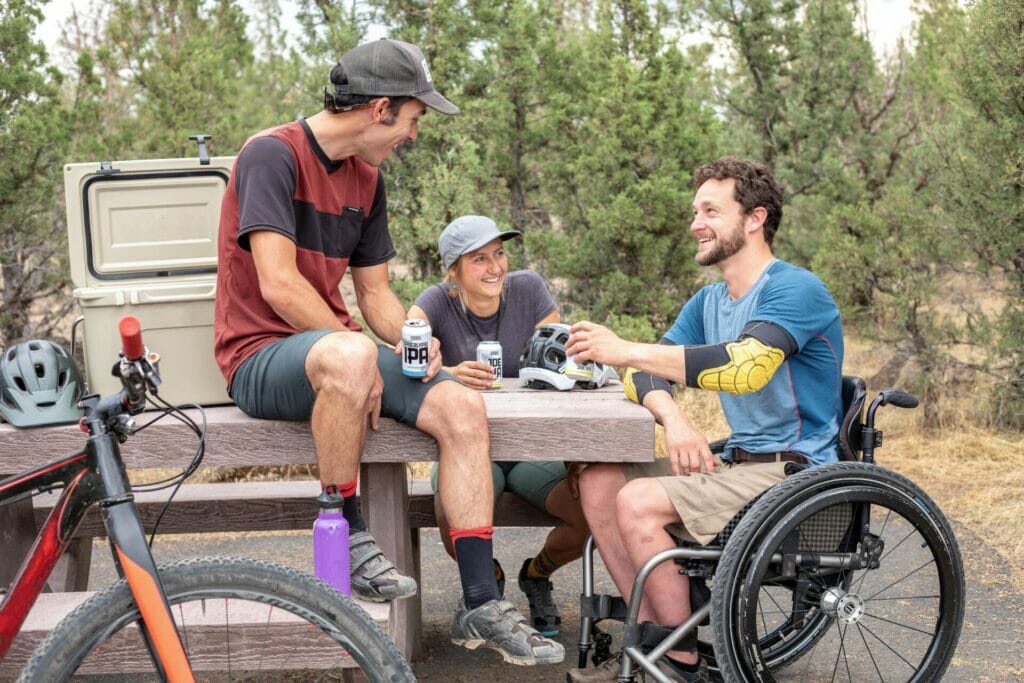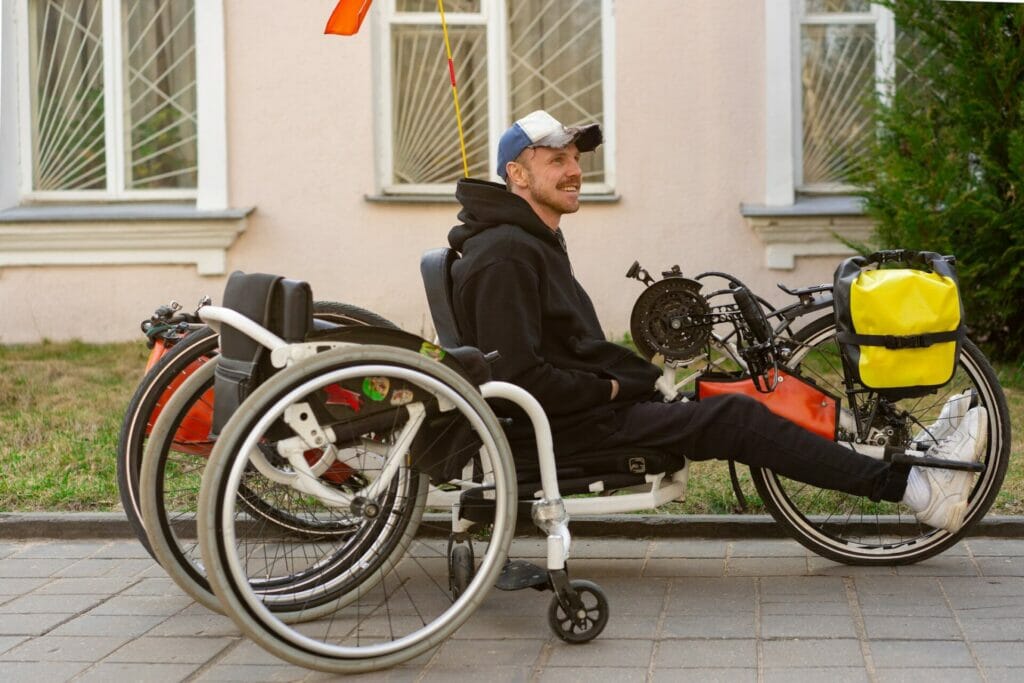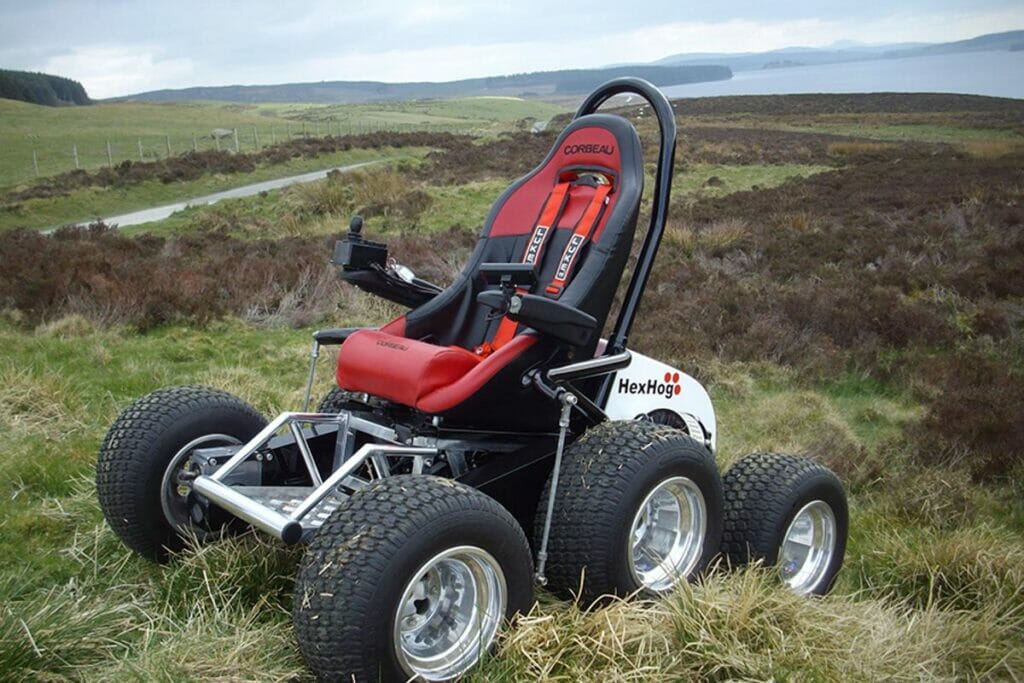What is Adaptive Hiking? Empowering People With Disabilities
As an avid hiker, I can attest to the importance of adaptive hiking. Hiking has always been a passion of mine, but participating in adaptive hikes has given me a new appreciation for the challenges faced by individuals with disabilities and the innovative solutions that have been developed to overcome them.
My personal experience with adaptive hiking was incredibly positive. Watching these individuals tackle steep trails and rugged terrain was truly inspiring.
The sense of accomplishment and joy on their faces as they reach the destination is still unforgettable.
But most people don’t what is adaptive hiking and how it’s done. So in this blog, I will tell you all my observations and experience.

What Is Adaptive Hiking?
Adaptive hiking is a type of outdoor recreation that accommodates individuals with physical, sensory, or cognitive disabilities.
It provides a unique and meaningful way for these individuals to experience the beauty and benefits of nature.
5 Surprising Benefits of Hiking
Adaptive hiking takes into consideration the individual’s abilities and limitations and uses specialized equipment and techniques to enable them to participate in the activity.
For many, adaptive hiking is not just a physical activity but a form of therapy. Being in nature has been shown to have a calming effect on the mind and body, reducing stress and improving overall well-being.
Adaptive hiking provides a unique opportunity to connect with nature, challenge oneself, and create new memories.

Purpose of Adaptive Hiking
The purpose of adaptive hiking is to provide disabled individuals the opportunity to participate in outdoor recreation and experience the benefits of nature.
It is an empowering and life-changing experience that allows them to push their boundaries and enjoy the great outdoors, just like anyone else.
It promotes inclusion and accessibility in the outdoors, allowing individuals with disabilities to participate in an activity that was previously inaccessible to them.
Adaptive hiking helps break down barriers and promote a more inclusive society.
It also provides numerous physical, mental, and emotional benefits. Being in nature has been shown to reduce stress, improve overall well-being, and boost self-esteem.
Preparation And Safety Measures
Preparation and safety measures are essential when it comes to adaptive hiking, particularly when hiking with individuals with disabilities. Proper preparation and safety measures help ensure a safe, enjoyable, and successful hiking experience.
How To Pack Your Backpack For An Overnight Hike
Some important preparation and safety measures include:
1. Planning the route
It is important to choose a trail that is appropriate for the abilities and limitations of the participants. Factors to consider include trail length, elevation gain, and trail surface.
2. Preparing for the weather
Adaptive hikers should be prepared for changing weather conditions and bring appropriate clothing, gear, and supplies. This may include extra layers, rain gear, and sun protection.
3.Checking equipment
Before hitting the trail, hikers should check their equipment, including adaptive gear, to ensure that it is in good working order and that they have everything they need.
Understanding safety protocols
Hikers should be aware of the safety protocols for their hike and be prepared to follow them in the event of an emergency. This may include knowledge of first-aid, navigation, and survival skills.
Adaptive Hiking Equipment and Gear
Adaptive hiking equipment and gear play a critical role in enabling individuals with disabilities to participate in this form of outdoor recreation.
These specialized equipments and gears are designed to accommodate the abilities and limitations of individuals with disabilities and provide them with a safe and enjoyable hiking experience.
Some common adaptive hiking equipment and gear include:
Handcycles

Handcycles are specialized bicycles designed for individuals with mobility impairments. They allow individuals to participate in cycling activities, including hiking.
All-terrain wheelchairs

All-terrain wheelchairs are specialized wheelchairs designed for use on rough terrain and off-road trails. They provide individuals with mobility impairments with the ability to participate in adaptive hiking.
Mobility devices
Mobility devices are specialized devices designed to assist individuals with mobility impairments, including crutches, canes, and walkers.
Adaptive hiking gear
Adaptive hiking gear includes specialized equipment, such as harnesses, braces, and straps, designed to assist individuals with disabilities in hiking and navigating rough terrain.
Adaptive Hiking Techniques and Tips
Some important adaptive hiking techniques and tips include:
Proper technique
Adaptive hikers should use proper techniques when navigating rough terrain, such as maintaining good posture and using their arms and legs to maintain balance.
Communication
Good communication is essential when hiking with individuals with disabilities. This includes clear and concise instructions, as well as being attentive to any signs of discomfort or fatigue.
Slow and steady
Adaptive hikers should take their time and move at a steady pace to reduce the risk of fatigue and injury.
Pacing
Adaptive hikers should pay attention to their bodies and pace themselves appropriately, taking breaks as needed and avoiding overexertion.
Adaptive gear
Adaptive hikers should use proper adaptive gear, such as harnesses, braces, and straps, to provide additional support and stability.
These techniques and tips provide disabled individuals the support and guidance they need to participate in adaptive hiking and navigate rough terrain safely and effectively.
By following these techniques and tips, individuals with disabilities can enjoy all the benefits of this form of outdoor recreation and experience the joys of being in nature.
Adaptive Hiking Programs and Events
Adaptive hiking programs and events provide disabled individuals with opportunities to participate in this form of outdoor recreation in a supportive and inclusive environment.
These programs and events are designed to promote accessibility and provide individuals with disabilities with the necessary resources and support to participate in adaptive hiking.

Some common adaptive hiking programs and events include:
Guided hikes
Guided hikes are organized hikes led by trained and experienced guides. These hikes provide individuals with disabilities with the support and guidance they need to participate in adaptive hiking.
Adaptive hiking clinics
Adaptive hiking clinics provide individuals with disabilities with the opportunity to learn about adaptive hiking equipment and gear, as well as proper adaptive hiking techniques.
Adaptive hiking retreats
This provide individuals with disabilities with the opportunity to participate in a multi-day adaptive hiking experience in a supportive and inclusive environment.
Adaptive hiking festivals
Adaptive hiking festivals are events that bring together individuals with disabilities, adaptive hiking enthusiasts, and outdoor organizations to celebrate adaptive hiking and promote accessibility in the outdoors.
Encouragement For People To Try Adaptive Hiking
For those who are considering trying adaptive hiking, here are some encouragements:
Benefits
Adaptive hiking offers numerous physical, mental, and emotional benefits, including improved cardiovascular health, reduced stress and anxiety, and increased self-esteem and confidence.
Accessibility
It provides opportunity to disabled people to participate in outdoor recreation in a supportive and inclusive environment.
Community
It provide disabled individuals the opportunity to connect with others who share a passion for this form of outdoor recreation.
Personal growth
Adaptive hiking provides opportunity to challenge themselves in new and exciting ways and to experience personal growth and development.
Enjoyment
Adaptive hiking can be a fun and enjoyable experience, offering individuals with disabilities the opportunity to explore nature and experience the joys of being in the outdoors.
As an avid hiker, I personally attest to the benefits of adaptive hiking. Despite the challenges that individuals with disabilities may face, adaptive hiking provides a unique opportunity to connect with nature and challenge oneself in new and exciting ways.
Online Resources For Adaptive Hiking
There are numerous online resources available for individuals with disabilities who are interested in adaptive hiking.
These resources provide information on adaptive hiking equipment and gear, proper adaptive hiking techniques, and adaptive hiking programs and events.
They also provide individuals with disabilities with a supportive community of adaptive hiking enthusiasts.
Some of the most popular online resources for adaptive hiking include:
Adaptive Hiking Websites
There are numerous websites dedicated to adaptive hiking that provide information on adaptive hiking equipment and gear, proper adaptive hiking techniques, and adaptive hiking programs and events.
Adaptive Hiking Facebook Groups
Facebook groups are a great way for individuals with disabilities to connect with others who share a passion for adaptive hiking. These groups provide a supportive community for adaptive hiking enthusiasts.
Adaptive Hiking Instagram Accounts
Instagram is a great platform for individuals with disabilities to connect with others who share a passion for adaptive hiking.
There are numerous Instagram accounts dedicated to adaptive hiking that provide information on adaptive hiking equipment and gear, proper adaptive hiking techniques, and adaptive hiking programs and events.
Conclusion
In conclusion, adaptive hiking is a wonderful form of outdoor recreation that offers numerous physical, mental, and emotional benefits.
With the help of online resources, individuals with disabilities can learn more about adaptive hiking equipment and gear, proper adaptive hiking techniques, and adaptive hiking programs and events.


